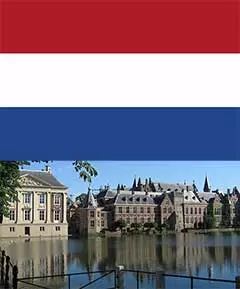
by Marco Respinti — On Thursday, February 25, the Dutch parliament passed a non-binding motion defining as “genocide” the crimes happening against Uyghurs in China. The motion had been introduced by Sjoerd Sjoerdsma, of the center-left party Democraten 66, who also separately proposed lobbying the International Olympic Committee to move the 2022 Winter Olympics away from China.
The motion states that “measures intended to prevent births” and “having punishment camps” fell under United Nations Resolution 260, generally known as the genocide convention.
It is the first time such a motion is passed in a European parliament.
Outside Europe, in fact, the House of Commons of the Canadian Parliament voted to support a motion, which formally recognized the CCP crimes as genocide on Monday, February 22, 2021, and in Europe (geographically speaking) the UK is stuck in a parliamentary discussion on the subject. After a heated discussion, the House of Lords approved for the second time an amendment clearly aimed at China, preventing trade deals with countries guilty of genocide, but the pro-Chinese forces within the British government aims to stop it at the House of Commons, where the amendment is now going for its fourth and final step.
The text of the Dutch motion clearly affirms that “A genocide on the Uighur minority is occurring in China.”
Yes, it stops short of directly indicting the central Chinese government for the systematic crimes waged on in the Xinjiang Uyghur Autonomous Region (XUAR), which its Muslim Uyghur and other Turkic inhabitants call East Turkestan.
Yes, it leaves unspecified the real nature and reasons of the CCP’s genocide against Uyghurs and other Turkic people in XUAR, most of whom are Muslim, carried on out of contempt for cultural (and ethnic) diversity and hatred of religion—a contempt fed by the CCP’s greed for power and a hatred rooted in the CCP’s ideological Marxist premises.
Nonetheless, the CCP got the message crystal-clear.
The Chinese Embassy in the Netherlands immediately responded, calling genocide in Xinjiang “an outright lie” spread with “total disregard of facts and common sense” through a motion which “has deliberately smeared China and grossly interfered in China’s internal affairs.”
Courting ridicule, the Chinese Embassy added also that “[i]n recent years, Uyghur population in Xinjiang has enjoyed steady growth and their living standard has seen significant improvement,” reiterating the regime’s classical negationist lie: “Xinjiang-related issues are never about human rights, ethnicity, or religion, but about combating violent terrorism and secession.”
Undoubtedly, this reaction confirmed that the proponents of the motion hit the CCP where it hurts. Could motions of this kind be stronger and more detailed? Possibly. But, as Irish philosopher and politician Edmund Burke (1729-1797) used to say, politics is the art of the possible. For the time being, this is what it was possible to do.
Similar motions are on their way in other European parliaments. If they are passed, one after the other, it will be a wave. At that point, governments may decide to act accordingly. That day, the scope of what the polical art of the possible could accomplish will considerably broaden.
Source: Bitter Winter





